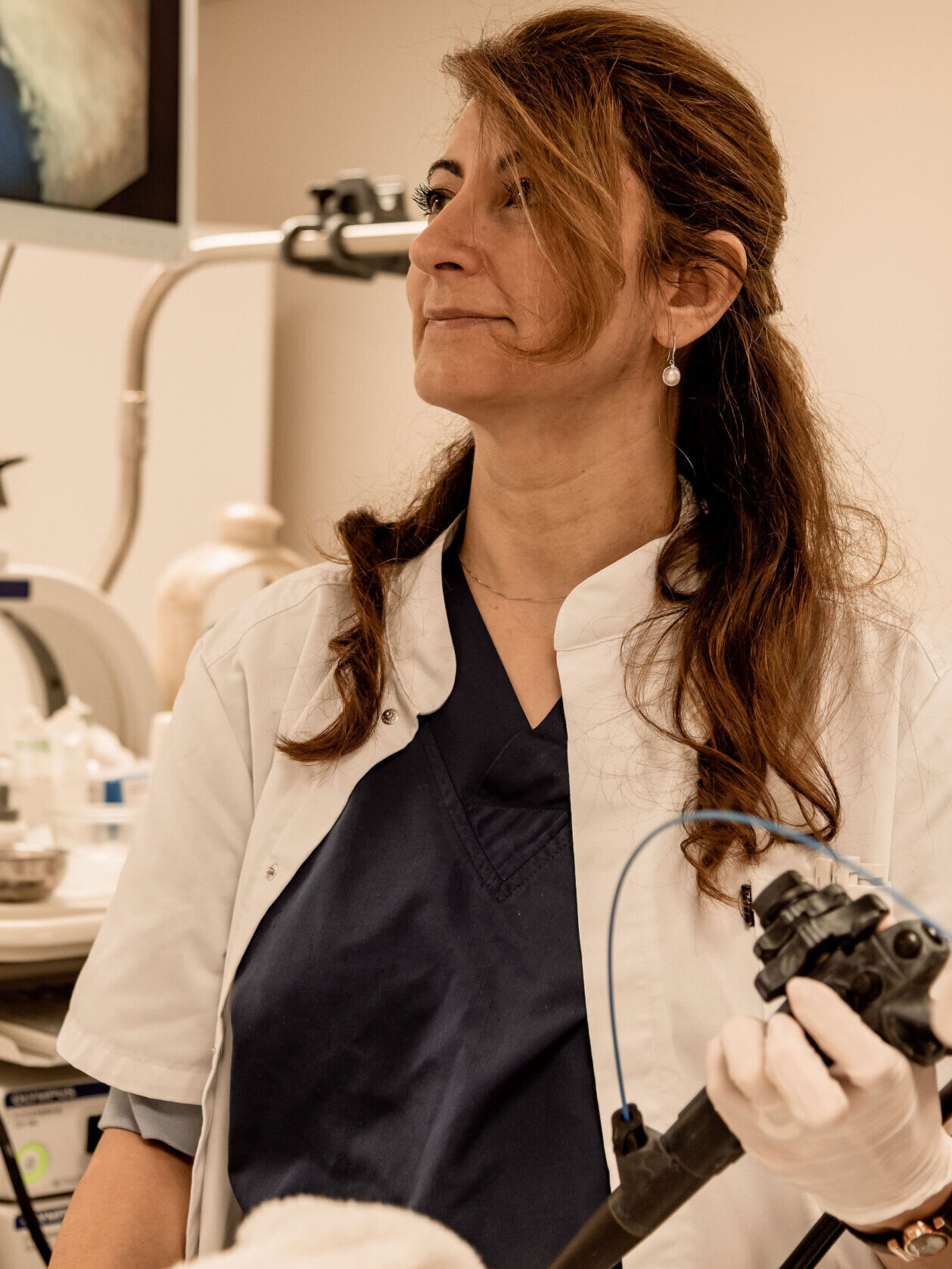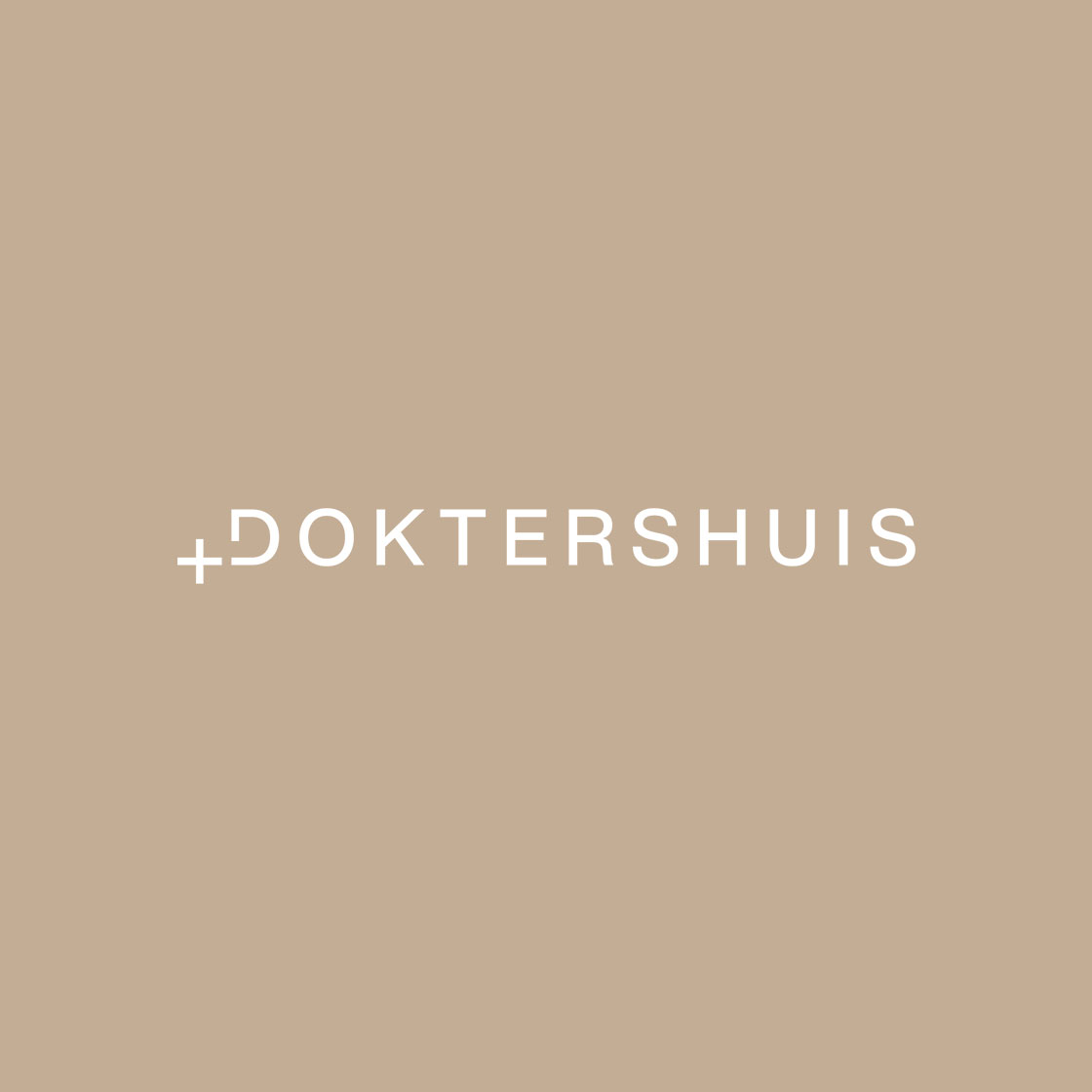Radiology
You can visit our radiology department for a mammography and/or ultrasound of the breasts. So can detect breast cancer at an early stage. It is estimated that 1 in 12 women get breast cancer sooner or later, and it is the leading cause of death in women between the ages of 45 and 69. It is recommended that every woman have this examination once every 2 years starting at age 45. If there are breast cancers in the family or if you have an increased risk profile, it is possible that your specialist will recommend mammography from a younger age or at a higher frequency.
Bone fractures such as hip fractures can cause significant complications in old age and are even a major cause of death in old age. Fortunately, this can largely be avoided through preventive and therapeutic measures vv "weakened bone" or osteoporosis. With the help of a bone densitometry or 'bone measurement' we can determine the density of the bones and the degree of osteoporosis (osteopenia to osteoporosis). Thus, your specialist will check whether you are eligible for (reimbursement of) bone-supporting medication to avoid bone fractures in the future.
Fat percentage scanning and distribution in the body. Using this examination, the fat percentage and fat distribution in your body can be determined. This can be a useful tool to evaluate and adjust the effects of your lifestyle changes under the guidance of our specialist. Also very appropriate when starting and following up weight reducing medication such as ozempic.
You can also visit our radiology department for all kinds of ultrasounds.
- ultrasound abdomen (ultrasound abdomen), echo cardio (ultrasound cardiography), echo cervical vessels (echo doppler), ultrasound prostate (transrectal echo) and ultrasound breasts.
Blood and urine tests
During the consultation or screening we can always perform a blood and urine test. It is also possible to make an appointment for these tests only. These tests give us a lot of information about the functioning of the kidneys and liver, the cholesterol, sugar level, blood diseases such as leukemia can be excluded here.
Furthermore, signs of prostate cancer, the operation of the thyroid, but also vitamin deficiencies and infections incl. STDs, are checked. Depending on your individual state of health, other more specific blood or urine tests may of course be appropriate.
Cardiology
Cardiovascular disease is still the leading cause of death in the Western world. Regardless of age, this is and remains a very important study. Thanks to prompt diagnosis and treatment, we can prevent a lot. Here we take into account your family burden, age, lifestyle, complaints, etc.. We also take a case-by-case approach.
We have some basic surveys that we will do during the consultation. We will take a electrocardiogram followed by a stress test. In doing so, your blood pressure and heart rate monitored and we can detect constrictions on the coronary arteries.
After that, a echo of the heart (echocardio). Further investigations may result from this consultation. For example, a 24-hour blood pressure monitoring, a a MIBI scan, CT scan of the coronaries (coronary arteries), Holter monitoring, or cardiac MRI, all judging by symptoms or family cardiovascular history.
In heart disease, we first try with medication treat the disease. Sometimes medication can also be started preventively. In some cases, a intervention be performed. This involves surgery. This is often done through the groin or wrist. For this we cooperate with the Middelheim Hospital or the Onze Lieve Vrouweziekenhuis in Aalst. Of course, a hospital of your choice is also possible.


Gastroenterology
Also called gastrointestinal diseases. This involves checking the various organs such as: the esophagus, stomach, small intestine, colon, rectum, anus and digestive glands and treating them if necessary.
Do you suffer from abdominal pain, constipation, diarrhea, bloating, stomach pain, nausea, reflux, blood loss in stool, anal itching, anal pain, etc.? Then all this can be discussed and checked during a consultation.
The gastroenterologist will use an abdominal ultrasound (lower abdominal ultrasound) to form a picture of all your different organs. Bladder, liver, kidneys, spleen, pancreas, gallbladder, prostate are mapped. Here we look especially for stones, polyps, cysts, cancers . Of course, medication can be started to treat various diseases. Sometimes medication is not enough and further examinations are needed. Think of a rectoscopy (the last 45 cm are checked) or colonoscopy (complete bowel examination).
Rectoscopy or colonoscopy
During a colonoscopy a camera is used to look inside the colon under light anesthesia. After all, colon cancer is one of the top 3 most common cancers in both men and women and usually starts with small polyps that can be removed before they degenerate into cancer.
The examination can be done from the age of 30. Your family and personal history will of course be taken into account. A microscopic examination for the presence of blood in the stool (iFOB test) also helps determine whether you - and with what frequency -, qualify for a colonoscopy. During the colonoscopy, any polyps present will also be removed (polypectomy).
When stomach burden is a gastroscopy often recommended. This involves looking into the stomach with a camera under light or, if desired, full anesthesia. This allows your specialist to detect stomach or esophageal infections, ulcers or cancers, among other things.
Sometimes a virtual colonoscopy be requested by the gastroenterologist. This is a method of examining the colon using a scanner. This examination will be used when a colonoscopy is not possible.
Furthermore, the gastroenterologist may also screen for food intolerances. This can be through a lactose and fructose intolerance test or breath hydrogen test. They also represent disorders of the anal canal. Also called proctology mentioned. This covers a large group of different conditions. Consider, for example hemorrhoids, fisuren, etc.


Urology
Coming soon professionele expertise
Vascular Medicine
Our vascular surgery consultation, or also known as vascular surgery, specializes in the
Examine and treat conditions related to blood vessels (veins and
arteries), as well as lymphatic vessels. During the consultation, there will be a questioning and clinical examination of
the patient, after which a duplex examination (echo-doppler) can be performed. If
If necessary, further investigations can be requested such as a CT scan, MRI, etc.
Treatments can range from medication, minimally invasive surgery (laser, treatment with a balloon or stent,...), or classic open surgeries (bypass, artificial artery,...). For the surgical procedures They are affiliated with the AZ Monica in Deurne. A treatment plan is drawn up in consultation with the patient.
It often makes sense to perform a preventive screening of the blood vessels. For example, with a duplex examination the presence of constrictions and/or calcifications thv the carotid artery or an aneurysm thv the abdominal artery are diagnosed.
A narrowing of the carotid artery is one of the causes of stroke (cerebral infarction or CVA). This involves an interruption in the blood supply to the brain. Symptoms of a stroke include temporary or permanent paralysis of an arm and/or leg, blindness, speech disorders...
Sometimes a localized dilation of the abdominal artery (aneurysm) can also occur, due to a weak artery wall. Patients often do not know they have an aneurysm, as it does not cause any symptoms. As the size of the bulge increases, so does the risk of rupture. This is a life-threatening situation, with a fatal outcome in 75-80% of cases. An early diagnosis is therefore important. You can contact them for the following problems:
Varicose veins: Diagnosis, ultrasound/duplex and treatment: dry spray (foam/sclerotherapy), laser ablation and surgical removal.
Arteries: Diagnosis, ultrasound/duplex and treatment: from endovascular treatment (balloons and stents) to classical surgery.
Thrombophlebitis and deep venous thrombosis: diagnosis, echo/duplex and treatment
Wound problems: chronic and/or complex wounds that heal poorly
Lymphedema and lipedema: diagnosis, echo/duplex and treatment
Access Surgery: vascular access for dialysis, medication...
Minor surgery: suspicious skin spots, subcutaneous fat globules....
Gynecology
Our gynecologists do more than just consultations and pregnancies. At the gynecology consultation you can get information, diagnostics and treatments for gynecological problems. Women can also come to us for cosmetic gynecology. Whether it is about contraception, cycle problems, abnormal smears, STDs, abdominal pain, fertility problems, sexuality, breast pathology, menopause, urine leakage or gynecological prolapse, the gynecologists can help you in a confidential and personal way with expertise.
During a monitoring examination, a smear be taken, vaginal ultrasound, ultrasound abdomen, echo breast, palpation of the breast, mammography, bone densitometry. Should surgical intervention prove necessary, our gynecologists can perform it at the GZA Sint-Vincentius Hospital. Women going towards menopause can specifically go to our menopause clinic.
For cosmetic gynecology treatments will take place within the doctor's office. We are thinking of a labia correction, enlargement or reduction of the inner/outer labia as well as a reduction of the clitoral hood. Possible corrections of the entrance to the vagina and pelvic floor are possible. Here we are thinking of constriction of vagina. This can be done surgically or through a laser called the Femilift.
This laser is one of the latest gadgets we have acquired. FemiLift is an advanced, minimally invasive, outpatient CO2 laser treatment which provides optimal results for a variety of female complaints, regardless of age or stage of life. Similar to a vaginal ultrasound, a unique, patient-specific probe is inserted into the vagina to gently treat the vaginal tissue.
The Femilift can be used for a vaginal rejuvenation concerns (tighter), this is also a useful tool for involuntary urine leakage. If you would suffer from painful scars, pain with intercourse caused by vestibulodynia or treatment of shiny spots or wounds to the labia can also be treated with our lazer.
Patients for Cosmetic Gynecology should ALWAYS schedule an appointment with Dr. Elst first, where everything is clearly reviewed and talked through.
Nose-throat-ear specialist
Coming soon professionele expertise
Neurology
Coming soon professionele expertise
Pneumology
As pneumologists, we specialize in the diagnosis and treatment of conditions related to the airways and the lungs.
Through spirometry/bodybox, a widely used test for lung function, we can measure airflow into and out of the lungs, which helps us identify conditions such as asthma, COPD and restrictive lung diseases. We may also prescribe additional tests, such as a chest radiograph or CT scan of the chest, to detect any abnormalities in the lungs.
Our goal is to early be able to diagnose various lung diseases, ranging from chronic conditions such as COPD to acute problems such as pneumonia or pulmonary embolisms.
A wide range of symptoms can indicate possible lung problems, including shortness of breath, coughing, wheezing, chest pain and fatigue. By taking these symptoms seriously and performing a thorough pneumologic examination, we strive to provide our patients with the best possible care and treatment, improving their quality of life.




